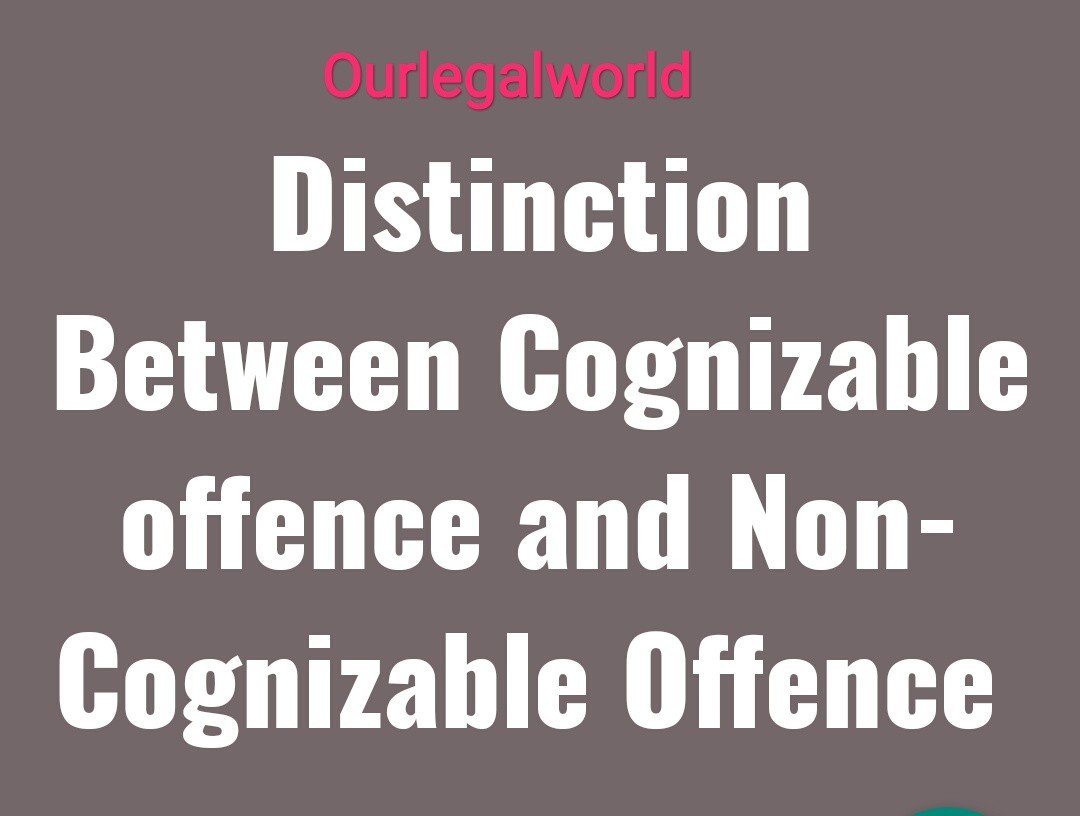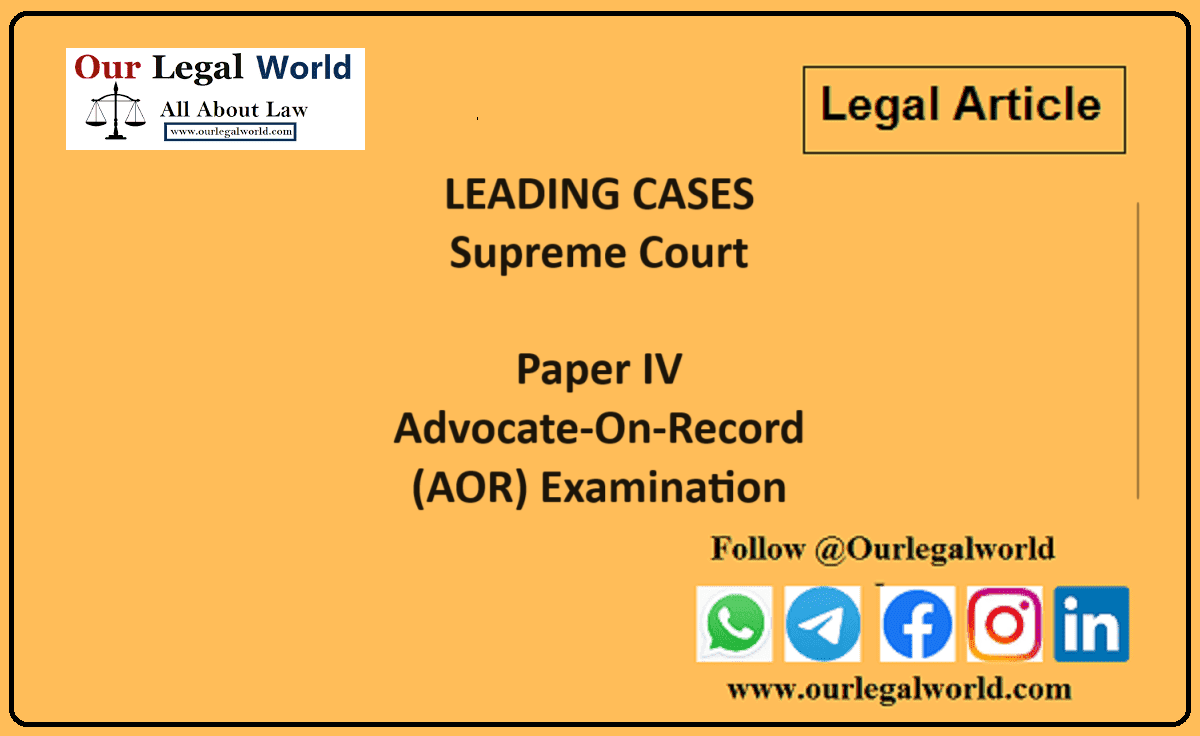Distinction Between Cognizable and Non-Cognizable Offence
Cognizance means knowledge, whereas offence means anything which is declared unlawful. In legal terms, the acts which are declared wrong under the substantive law are called as offence. On the other hand, cognizance means taking action by a police officer, whenever a police receive any information he has to take cognizance.
Offence:
The definition the ‘offence’ has been given under three parts under Indian Penal Code.
The first part said ,
a thing which is made punishable by the Indian Penal Code is an offence. The use of the words ‘a thing’ has been objected to on the ground that ‘a thing’ cannot be made punishable and, therefore, ‘a thing’ must mean an act or a series of acts, or an illegal omission or a series of illegal omissions.
The Second part said,
some chapters and sections have been specifically mentioned in which the word ‘offence’ denotes a thing which the Indian Penal Code or any special or local law punishes.
And in section 141, 176, 177, 201, 202, 212, 216, and 441, the word “offence” has the same meaning when the thing punishable under the special (Sec. 41) or local law Sec 42) is punishable under such law with imprisonment for a term of six months or upwards, whether with or without fine.
An offence can be classified as a cognizable offence and non-cognizable offence.
Section 2 (c) of the Criminal Procedure Code, 1973 defines Cognizable offences.
A cognizable offence is an offence in which the police officer as per the first schedule of the act or under any other law for the time being in force, can arrest the accused without a warrant.
Under section 154 Criminal Procedure Code (CrPC), a police officer is bound to register an FIR in case of a cognizable crime.
A non-cognizable offence is an offence listed under the first schedule of the Indian Penal Code and is bailable in nature. In case of a non-cognizable offence, the police cannot arrest the accused without a warrant.
Difference between Bailable offence and Non-Bailable Offence
|
S.no
|
Cognizable Offence
|
Non-Cognizable Offence
|
|
1.
|
All serious offences are cognizable
|
Non-cognizable offences are more trivial & less serious than a cognizable case
|
|
2.
|
Offences under laws other than the Indian Penal Code are punishable with 3 years imprisonment or more.
|
Those punishable with less than 3 years or with a fine.
|
|
3.
|
A cognizable offence is a criminal offence in which the police are empowered to register an FIR, investigate, and arrest an accused without a court-issued warrant.
|
A non-cognizable offence is an offence in which police can neither register FIR, investigate, nor effect arrest without a warrant.
|
|
4.
|
They are considered public wrongs, and prosecution of offenders is left to the imitative efforts of the state.
|
They are considered private wrongs, and prosecution of offender is left to initiative and efforts of private citizens.
|
Case Law on Distinction Between Cognizable and Non-Cognizable Offence
- Sakiri Vasu v. State Of U.P. And Others (2007)
The Supreme Court held that a person cannot insist that an offence be investigated by a particular agency. He can only claim that the offence he alleges was investigated properly.
2. Lalita Kumari v. State of U.P.& Ors (2013)
The Supreme Court held that under Section 154 of the CrPC, a police officer is bound to register an FIR if the information discloses a cognizable offence.







![Tax Law Internship at Legum Attorney [Chamber of Ashish Panday], Delhi : Apply by 15th May 2025](https://www.ourlegalworld.com/wp-content/uploads/2025/05/IMG_0113-min.png)

